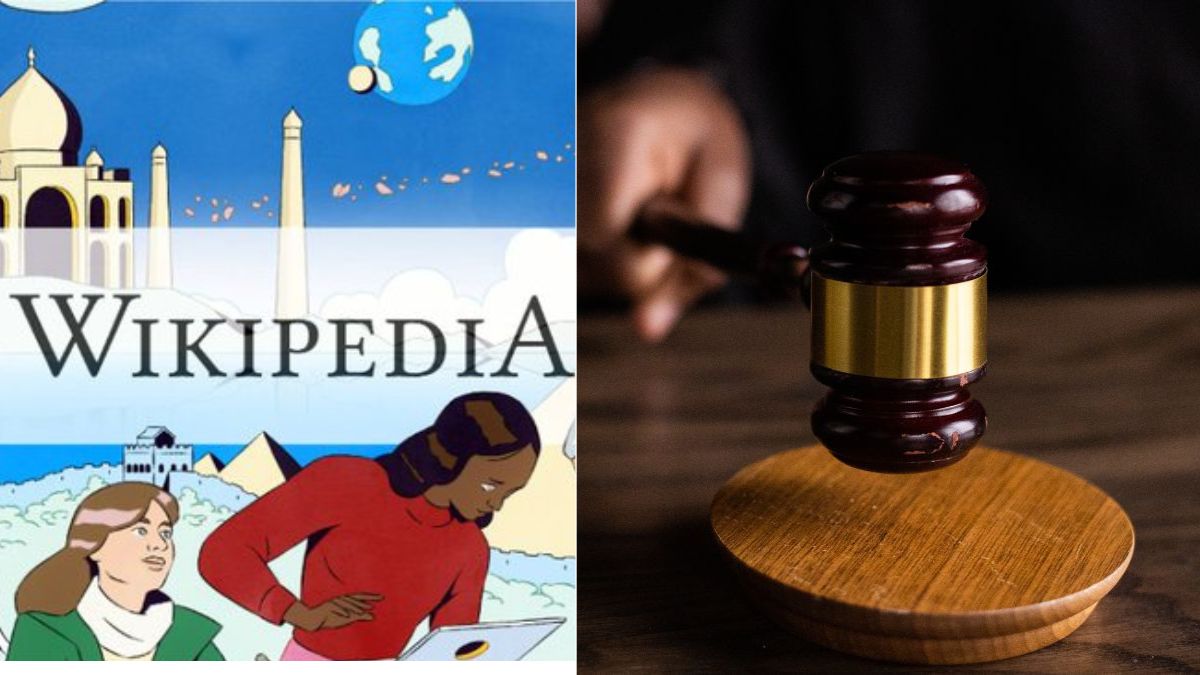The latest risk of a pan-India ban on Wikipedia by the Delhi Excessive Court docket highlights the advanced authorized and moral challenges surrounding on-line platforms and content material moderation. The court docket’s motion, stemming from a defamation swimsuit filed by a information company towards Wikipedia, raises considerations in regards to the potential for censorship and the impression on freedom of data.
The Case Towards Wikipedia
The Delhi Excessive Court docket’s risk of a ban arises from a defamation swimsuit filed by a number one information company towards Wikipedia. The plaintiff alleges that sure edits on the company’s Wikipedia web page had been inaccurate and defamatory, looking for damages of Rs 2 crore. The court docket’s dissatisfaction with Wikipedia’s response to the swimsuit, particularly its refusal to reveal details about contributors who made the alleged defamatory edits, led to the contempt discover and the specter of a ban.
The Court docket’s Arguments
The court docket’s reasoning for contemplating a ban on Wikipedia facilities on its perceived non-compliance with an earlier order. The court docket expressed frustration with Wikipedia’s refusal to disclose the identification of the contributors liable for the alleged defamatory content material. This refusal, the court docket argued, hinders the authorized course of and undermines its authority. The court docket’s sturdy stance, as evident in its assertion “When you do not like India, please do not work in India… We’ll ask the federal government to dam Wikipedia in India,” underscores the gravity of the scenario and the potential penalties for Wikipedia.
Wikipedia’s Response
In response to the court docket’s risk, Wikimedia, the entity internet hosting Wikipedia, reaffirmed its dedication to free and dependable data entry. In a press release, Wikimedia expressed its willpower to “make sure that the individuals of India proceed to have the fitting to share and entry free and dependable data in an open and secure on-line setting.”
Wikipedia’s Dilemma
This example highlights the tough balancing act confronted by on-line platforms like Wikipedia. On one hand, Wikipedia goals to advertise open entry to data and foster collaborative data creation. This precept necessitates defending the anonymity of its contributors, as many depend on this assure to freely specific themselves with out concern of repercussions. Alternatively, the platform faces stress to adjust to authorized calls for and make sure the accuracy and reliability of its content material. This balancing act turns into much more advanced in circumstances involving defamation lawsuits, the place the identification of contributors could possibly be essential to the authorized proceedings.
The World Context
The Wikipedia case resonates with the broader world debate round content material moderation and the duty of on-line platforms. Governments worldwide grapple with the challenges of regulating on-line content material, putting a steadiness between freedom of expression and combating misinformation, hate speech, and dangerous content material.
The Brazil Case
This incident comes on the heels of Brazil’s ban on X (previously Twitter), additional emphasizing the complexities of platform regulation. The Brazilian authorities justified its resolution based mostly on the platform’s alleged failure to deal with disinformation and its impression on the nation’s democratic processes. Nonetheless, the transfer sparked considerations about censorship and the potential for governments to make use of on-line platforms for political manipulation.
Freedom of Info vs. Authorized Obligations
At its core, the Wikipedia case highlights the conflict between the basic proper to free speech and entry to data and the authorized obligations of on-line platforms to reply to court docket orders and defamation claims.
The Authorized Framework
India’s authorized framework governing on-line platforms and defamation lawsuits continues to evolve. The Info Know-how Act, 2000, and the Defamation Act, 1899, present the authorized framework for addressing defamation claims, together with provisions for on-line platforms. Nonetheless, the complexities of on-line content material, significantly the anonymity of customers and the velocity at which data disseminates, pose distinctive challenges to making use of present legal guidelines.
Take Away Factors
- Balancing act: The Wikipedia case highlights the continuing problem for on-line platforms to steadiness the competing pursuits of defending customers’ anonymity, guaranteeing correct and dependable data, and complying with authorized obligations.
- World relevance: The incident echoes world debates surrounding content material moderation, censorship, and the duty of on-line platforms in shaping the knowledge panorama.
- Want for readability: The necessity for clear authorized frameworks that handle the evolving nature of on-line content material and the rights and tasks of on-line platforms is paramount.
- Potential implications: The result of the Wikipedia case might have far-reaching implications for on-line platforms in India and globally, doubtlessly setting precedents for platform regulation and the scope of authorized obligations.
- Significance of dialogue: Continued dialogue and collaboration amongst stakeholders, together with policymakers, on-line platforms, and civil society organizations, are essential for navigating the advanced moral and authorized points surrounding on-line platforms.




